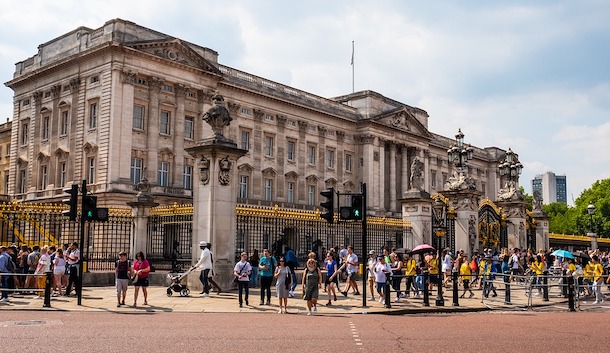The British adore democracy and cannot abide elections. Currently they are getting neither. They seem to be within hailing distance of getting both, however—if the talk about a general election lightens into action. I have doubts that this consummation, however devoutly wished, may happen any time soon.
The wretched Fixed Term Parliaments Act hangs darkly over the scene. This is the poisoned legacy of David Cameron’s Government, which was sponsored by Nick Clegg’s coalition partners, and it means that a two-thirds majority of MPs is required to call a general election. Since this puts power into the hands of the Opposition, which can always foil the Government, it should stand self-condemned. Cameron, an Oxford P.P.E., and a First at that, intended the FTPA to buttress the power of the executive and instead handed power to its enemies. A resource of centuries, that the Prime Minister could call an election whenever he pleased, was binned. Today’s Labour Party sees no reason why it should help the Conservative Government to the election it is said to crave, and withholds its permission for reasons that politically are perfectly justified.
There are other reasons. The term “general election” trips easily off the pen and tongue. The reality is that for many MPs it means death. There is no chance for a number of Conservatives that they can survive an election, and many more will be threatened. Labour also has its fears, especially in the Midlands and North. So much depends on the constituency: I have walked along Canonbury Park Road in a delectable suburb of fashionable Islington. It is the dividing line between Jeremy Corbyn’s manor north of the road and Emily Thornbury’s to the south. Both have impregnable majorities, and the party’s Leader and Shadow Foreign Secretary have no fears for their personal future. Those not so well placed include the Prime Minister. Boris Johnson is MP for Uxbridge and South Ruislip, with a majority of 5,034 in 2017. That looks fragile, and local issues matter. The closure of a police station in Uxbridge does not make national news, but it is hugely unpopular to the voters, as is Heath Row expansion with overfly problems. The Prime Minister is at the mercy of Nigel Farage, who if he chooses to put up a candidate in Uxbridge would split the Brexit/Conservative vote and de-throne Boris. My advice to both leaders: stay away from a general election. It is a fine thing to be Prime Minister and Leader of the Opposition; best keep it that way.
From these matters of State the public is diverted by the emotional hardships of Harry and Meghan, the Duke and Duchess of Sussex. They have laid bare their unhappiness at life in the public eye. Since Meghan has aimed at the public eye for several years, this seems strange; but in a TV interview the Duchess has claimed that it is not enough for them merely to survive life in the Royal family. “Not many people have asked me if I’m OK.” This is a fate endured by untold numbers, who may not feel kinship with the unhappy Duchess on that account. She concedes that her gilded cage position requires some degree of media scrutiny, which she could accept “when things are fair.” “Fair”: that fence at which the world always falls. Harry’s “I will not be bullied into playing a game that killed my mother” is a misreading of history. Princess Diana co-opted the media, making them co-adjutors in her own game; she would call up media pals telling them in what street of London she was presently available to be harassed. She died not because of media bullying but because her driver, summoned at short notice, was partly drunk, and she did not belt up in a car traveling at the speed of a light aircraft. Harry’s devotion to the memory of his mother is admirable but does not command universal assent. The future for Harry and Meghan looks to be moving towards Africa and Los Angeles, perhaps with the latter predominating. We can now study the photograph of Meghan on the Telegraph front page of October 21, in which she is emotionally deploring the media spotlight on her life. Sartre thought that sincerity was a form of bad acting.
[Image via Alfred Derks from Pixabay.]

Leave a Reply